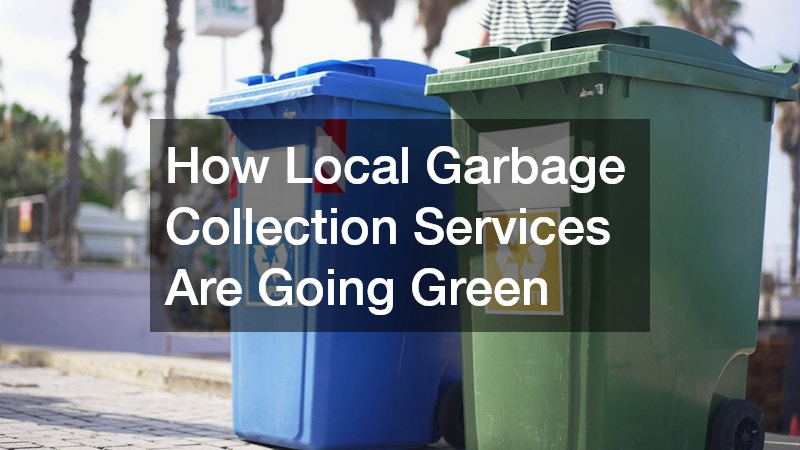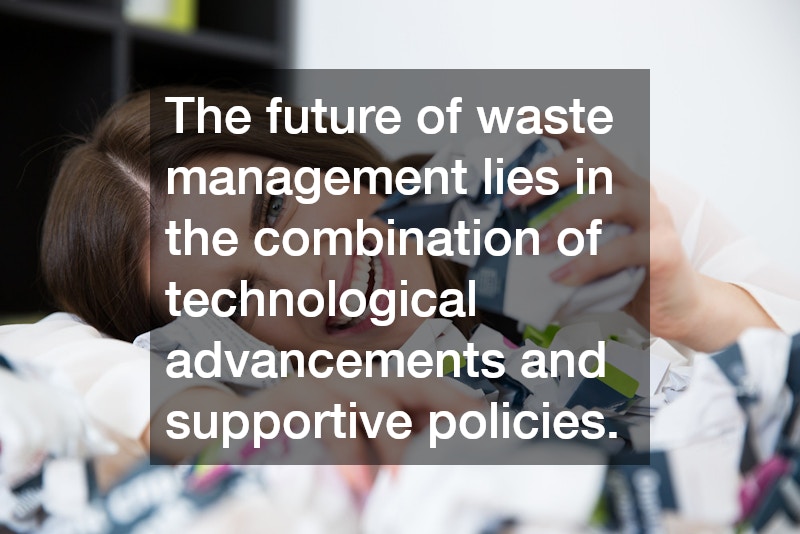In recent years, an increasing emphasis has been placed on sustainability, prompting many local garbage collection services to rethink their strategies. These services are playing a pivotal role in promoting environmental health through innovative measures.
What Initiatives are Local Garbage Collection Services Implementing to Become More Sustainable?
Utilization of Eco-Friendly Vehicles
Many garbage collection services are transitioning from traditional diesel-powered trucks to electric and hybrid vehicles. This change not only limits the release of harmful emissions but also reduces operational costs over time.
The adoption of eco-friendly vehicles is gaining momentum as municipalities work toward achieving carbon neutrality goals. Electric garbage trucks, though initially expensive, ultimately prove economically viable due to lower fuel and maintenance expenses.
In addition to reducing environmental impact, switching to eco-friendly vehicles helps improve urban air quality, which benefits community residents. Local governments are increasingly offering incentives and grants to encourage more waste management companies to make this transition.
Integration of Smart Waste Management Technologies
The shift towards technology-driven waste management is revolutionizing the efficiency of garbage collection. By utilizing sensors and data analytics, services can optimize collection routes, reducing fuel consumption and labor hours.
Smart waste management systems analyze waste generation patterns, allowing trucks to service bins only when they are full. This level of efficiency minimizes unnecessary trips, further contributing to sustainability goals.
Moreover, real-time data collected by smart technologies allow for improved decision-making and strategic planning in waste management. These technologies have proven to reduce operational costs while simultaneously enhancing service quality and community satisfaction.
How Do These Sustainable Practices Benefit the Community and Environment?
Reduction in Greenhouse Gas Emissions
Electric and hybrid vehicles emit significantly fewer greenhouse gases compared to their diesel counterparts, directly alleviating the local carbon footprint. Reduced emissions contribute to the global effort of mitigating climate change impacts.
With smarter routes, garbage trucks spend less time on the roads, which minimizes fuel usage and lowers emissions. This contributes to a cleaner and healthier environment for community members.
Communities that adopt these green practices see an improvement in air quality, benefiting public health and enhancing the overall quality of life. As waste management companies embrace better technologies, they set an example for other sectors to follow.
Enhanced Recycling and Waste Diversion Rates
Sustainable garbage collection methods prioritize recycling and waste diversion as key components. Implementing advanced sorting and processing techniques improves recycling yields, reducing the amount of waste sent to landfills.
As these systems become more efficient, they help redirect materials like plastics, paper, and metals from waste streams towards recycling facilities. Increased rates of diversion reduce environmental strain and preserve natural resources.
The focus on enhancing recycling yields also drives new business opportunities in circular economies. Local industries benefit from a reliable supply of recycled materials, fostering economic development and job creation.
What Challenges Do Services Face in Implementing Green Practices?
Cost Implications and Funding
Transitioning to sustainable methods comes with substantial initial costs, posing a financial challenge for many garbage collection services. Despite long-term savings, the upfront investment can be intimidating without adequate funding or subsidies.
Local governments and environmental organizations frequently offer grants and financial incentives to support the transition. However, navigating the application process can be cumbersome for smaller service providers.
The availability of subsidies plays a critical role in offsetting the initial costs of adopting green technologies. It allows waste management companies to upgrade their fleet and infrastructure while mitigating financial risks.
Public Awareness and Participation
Educating the public about the benefits and importance of sustainable waste management is crucial for successful implementation. Community participation is essential in ensuring proper waste segregation and recycling practices.
Increasing public awareness involves ongoing outreach, educational programs, and clear communication from local services and policymakers. As residents become more informed, they are more likely to engage and support eco-friendly initiatives.
Community involvement not only aids in achieving waste management goals but also fosters a culture of environmental stewardship. When individuals feel empowered to make a difference, collective efforts lead to lasting change.



